Growing up, I thought Disney’s The Little Mermaid was about Ursula. I thought the movie, though oddly focused on that emaciated red-headed hoarder*, was actually a film about a business-savvy octopus lady’s dream of political conquest, and the unfair regulations she was forced to overcome. **
*(This isn’t thin shaming so much as it is a response to Ariel’s most famous frame, in which she is grotesquely disproportionate. This is compared to the rest of the movie, where the animators did not render her a bobble head).
**(Somewhere, Ayn Rand’s specter is ambivalent about this sentence).
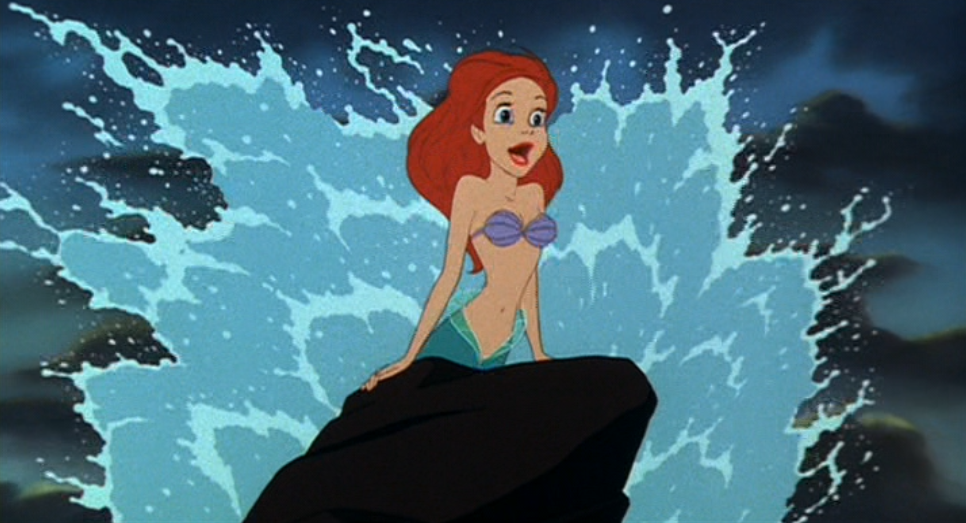
I love writing about Ursula the Sea Witch. I love looking at her character through the lens of anthropology, sociology, sexuality and–yes–body politics. All those lenses overlap, as Ursula’s representation is an intersectional, dramatic caricature, but that’s what media identities are: amalgamations between the loved and the hated, the blessed and the profane.
What I loved about Ursula was her unfettered, elaborate magics, all of which employed the use of that little birdbath cauldron. What I loved further was the added sophistication of chemical alchemy that comprised her roiling spells, complete with definitely-black-market additives and the liberal application of lipstick.
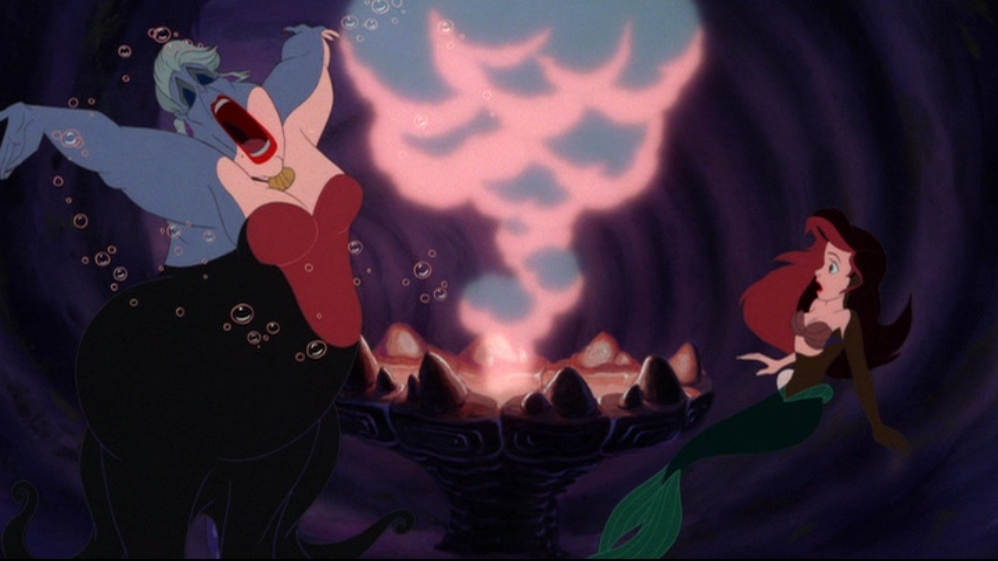
But what I loved most about Ursula the Sea Witch was the smoldering, sultry, evangelical liberation that she proposed in every growled lyric, spat line of dialogue, and undulating sway of that incredibly fluid body. She was powerful, and she knew it. And, further, she didn’t need a single blessing from anyone to be magnificent, physically and spiritually. That was a novelty I’ve never forgotten.
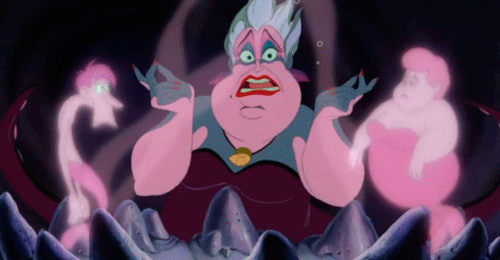
To a young gay kid growing up without representation, Ursula comprised everything I wanted to be. Yes, she was manipulative, notorious, and perhaps a bit scary….and yes, she was shady and took advantage of people’s insecurities in a way that was vaguely unsettling…
But Ursula was legal about everything she did! She drew up a contract, was clear in the parameters, didn’t obfuscate the fine print, and obtained consent from every party involved. What other villain did that?
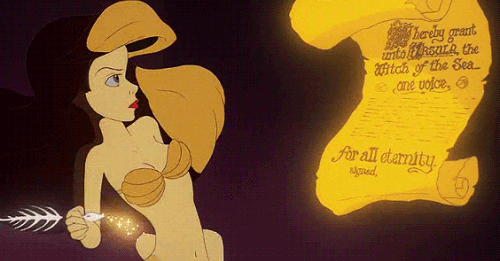
More importantly (at least to a me), Ursula was comfortable with herself. She was undeniably intelligent. She was disdained by society, but apathetic about it, and entirely self-sufficient in her lavish grotto. Most of all, she was clever in a way that not only amused her, but brought her what she needed.
Within Ursula the Sea Witch, wit, cunning, humor, and perspicacity formed their own sort of industriousness. And that mix of qualities–that personal alloy hidden beneath Ursula’s lavender flesh–hatched a personal ethos within me. She saw problems for what they were: embedded in a cultural context, with subjective laws and ambiguous virtues, and she derived effective solutions.
Literally, solutions. (This is a chemistry joke, so laugh nervously lest you appear uneducated).
And, of course, she was a drag queen. That can’t be ignored. You can thank Pat Carrol’s exquisite tenor for that.
To end, I’d like to quote Ursula’s perhaps least quoted line. The scene: After a fight with her father, Ariel tentatively drifts into the derelict grotto, and we hear Ursula say, “Come in! Come in, my child. We mustn’t lurk in doorways. It’s rude. One might question your upbringing.”
So don’t lurk in doorways. Don’t linger on the periphery, and don’t orbit your interests. Ursula’s right. It is rude. Rude to your company, but also rude to yourself. And if there’s anything that glorious Sea Witch has taught me, it’s that insolence turned inwards is the most vile form of self-destruction. So don’t suffer the bad company of a self-denial. Instead, be powerful, majestic, forthright and–if you find the right birdbath–steal the pipes from a naive princess and leverage the little delinquent against her abusive father so that you may actualize your dreams of submarine political domination.
***
Last week , the below video of Melissa May’s absolutely incredible slam poem ‘Dear Ursula‘ gave me chills for all of its three minutes and thirty-two seconds. This performance is from the 2014 Women of the World Poetry Slam, in which Melissa placed 7th overall, and you’ll want to watch it a few times. I have.
Like myself, Melissa is in love with Ursula as she was: classic, full-bodied, honest, and ruthless. I could go on and on about Ursula, specifically about the quandary of body positivity she represents, but Melissa does a much more compelling job. I’ll leave you with my favorite quote:
“You, big lady, were the only Disney character who ever looked like me. And while you may not have had the waistline of a princess, I’ll be goddamned if you didn’t have the swagger of a queen.”
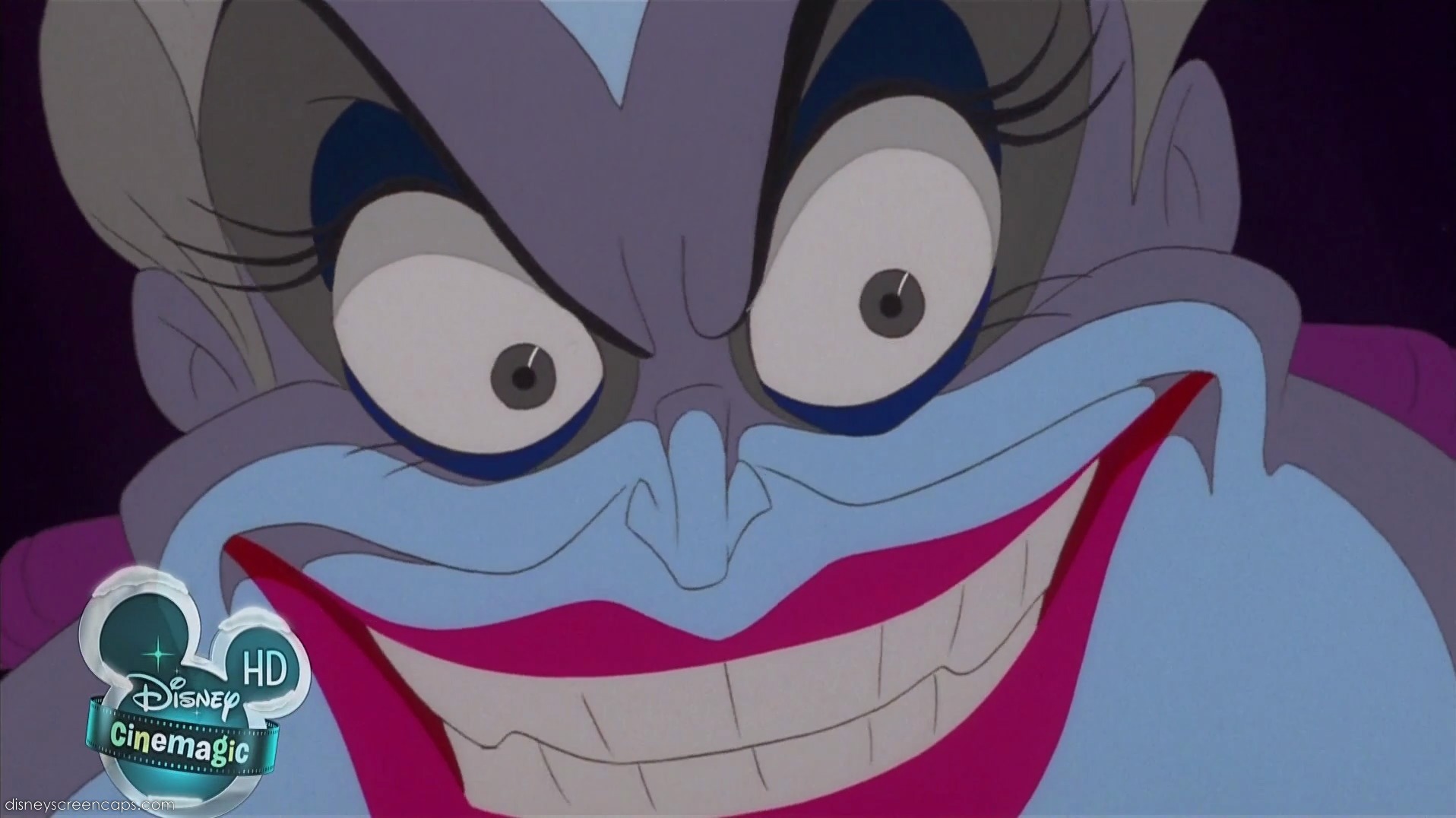
11 thoughts on “Educating the Ignorant on the Majesty of Ursula, Sea Witch and Gay Icon”